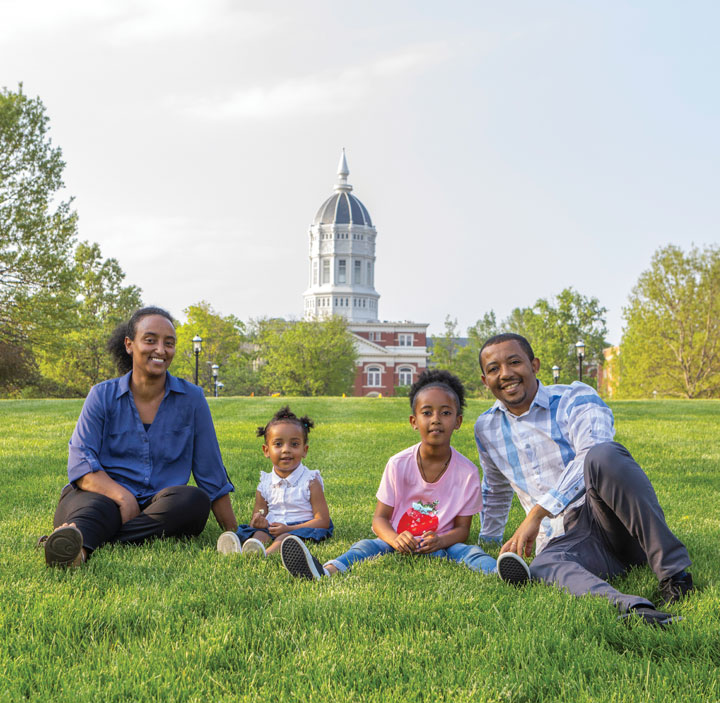News & Announcements
Health care for newcomers
Aug. 25, 2022

Gashaye Tefera knows firsthand how difficult it is for international students to deal with unfamiliar health care systems. In 2018, he was a fellow at the world’s largest nonprofit, United Way Worldwide, in Alexandria, Virginia, when he started having gastrointestinal issues. But he struggled to understand the care and the cost of coverage, so he delayed seeking treatment.
“I’m used to health services that are more universal,” says Tefera, who grew up in Ethiopia and studied in five European countries through the prestigious Erasmus Mundus scholarship. Despite his education and experience, he says, “I still didn’t know how to navigate the insurance system.”
After completing a master’s degree that looked at a gender-based violence prevention program in Ethiopian refugee settings, he came to Mizzou to earn a doctorate in social work. His research: immigrant women’s access to health services.
Tefera’s systematic review published in February showed that immigrant women experience personal-level barriers, including lack of transportation and language proficiency, as well as system-level barriers, including discrimination and miscommunication, and that they rely on family, community support and cultural solutions to overcome them. His dissertation will focus on the experiences of African immigrants.
Tefera relied on his own resilience and the support of the MU School of Social Work during the pandemic. When COVID shut down embassies around the world, he was separated for nearly two years from his wife and two young daughters who were in Ethiopia getting their international travel documents in order. Read more about his family’s story.